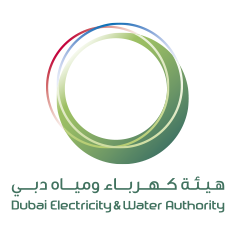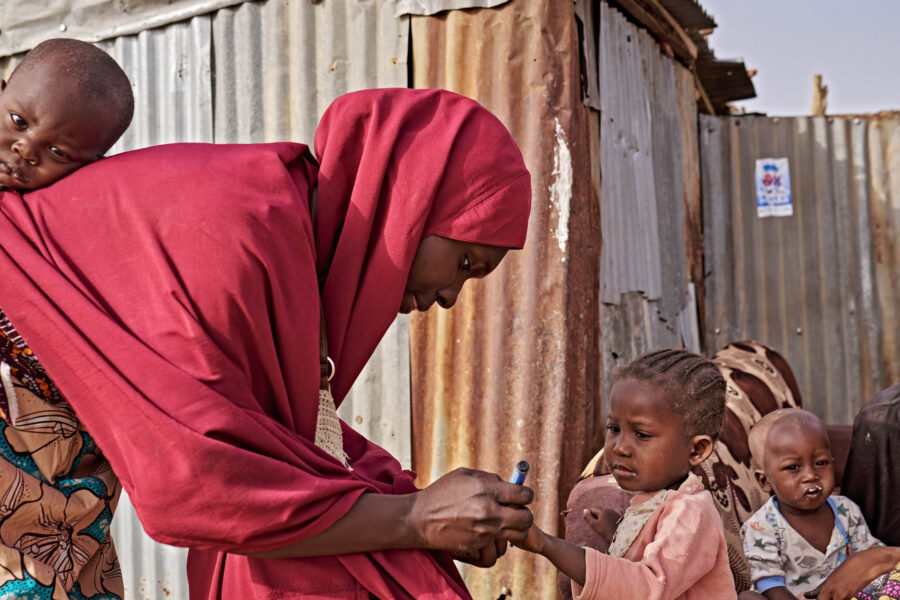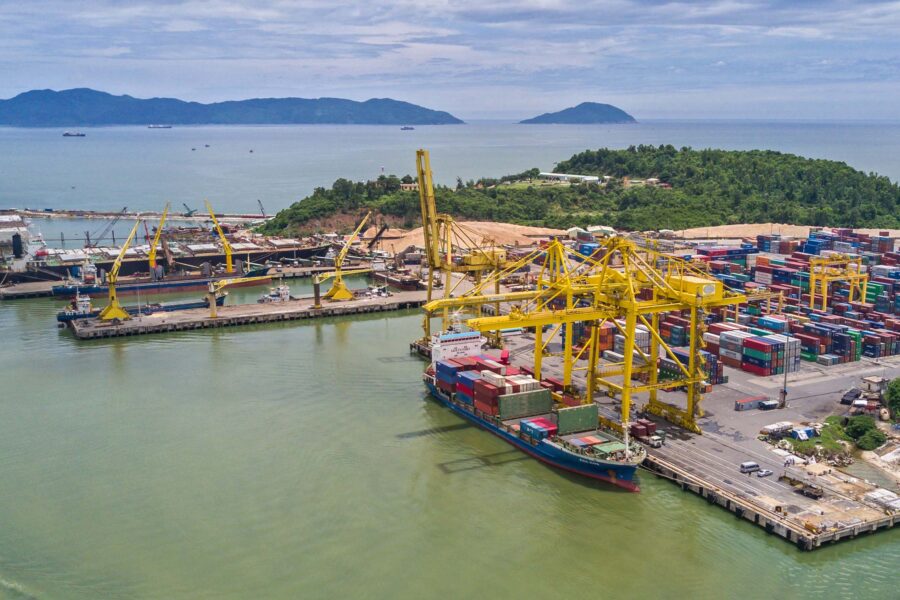Advancing the Global Agenda through adopting Circular Economy
Circular economy principles are a driving force behind Dubai Electricity and Water Authority (DEWA)’s ongoing commitment to sustainability. The power of the circular economy to revolutionize how we produce, consume, and manage resources is a critical tool in achieving the UN’s Agenda 2030
Economic development — Middle East and Northern Africa

According to the World Economic Forum’s Global Risks Report 2024, environmental risks will continue to dominate over the coming decades. Extreme weather events are the top four global risks in terms of severity over the long term, followed by critical changes to Earth systems, biodiversity loss and ecosystem collapse, and natural resource shortages. Pollution is also a major risk, ranked 10th. The circular economy has the potential to help mitigate these risks by applying its principles.
At its core, the circular economy represents a shift in economic thinking by designing out waste and pollution, promoting product and material reuse, and regenerating natural systems. By adhering to these principles, the circular economy not only mitigates environmental degradation but also drives economic growth, social inclusion, and innovation. Moreover, harnessing circular economy principles will advance achieving the Sustainable Development Goals (SDGs) and targets set under the UN’s 2030 agenda.
DEWA’s circular economy model
In line with the vision and directives of the wise leadership to foster a sustainable and prosperous future, Dubai Electricity and Water Authority (DEWA) prioritizes sustainable business practices and operations, which have served as a strategic driver behind DEWA’s successful sustainable journey.
DEWA’s Circular Economy Strategy supports the UAE Circular Economy Policy by focusing on optimizing resource use and enhancing social, economic, and environmental value. This is achieved by encouraging sustainable practices, including recycling resources and reducing waste. Building on the momentum of its circular activities, DEWA continues to move along its sustainable pathway by adopting a clear circular economy model within its strategy. The model is designed to drive the business across the entire value chain and slowly shift away from the traditional linear business model towards a circular one.
DEWA’s circular economy model includes five focus pillars that serve as a basis for circularity across the business:
The first is the circular design and use of circular material. This pillar integrates circularity through designing systems to incorporate principles such as circular inflow, recoverability, reusability, refurbishment, and recycling at the end of the product’s lifespan.
The second pillar, optimizing asset management, promotes circularity by using predictive maintenance, repairing, and refurbishing instead of replacing.
The third pillar, value retention and end-of-life treatment, aims to retain as much value of assets and products as possible, by reusing materials internally, reselling externally, repairing or refurbishing, and only recycling where no other higher value retention processes are possible.
To improve circular processes, the fourth focus pillar is developing strategic collaboration and circular partnerships in the value chain with material suppliers, end-of-life treatment partners, and customers.
The fifth and final pillar encapsulates DEWA’s core business: expanding clean and renewable energy capacity and improving energy and water efficiency across its operations.
DEWA is advancing these five circular priorities and further collaborating with stakeholders in the value chain. By focusing on Smart Users, it is actively supporting its customers in optimising energy consumption and lowering resource usage through use of real-time data and offering Smart Use solutions. It is engaging with suppliers to jointly contribute to the transition towards a circular economy and ensure full value chain collaboration on the use of circular material and the re-use of assets. Lastly, DEWA sets circular procurement criteria for its assets and equipment to ensure circular procurement is embedded throughout the value chain..
Implementing circular economy solutions
The transformative power of circular economy principles is evident in many of DEWA’s flagship operations, which directly contribute to achieve the SDGs. Leading projects include the Mohammed bin Rashid Al Maktoum Solar Park, the largest single-site solar park in the world based on the independent power producer (IPP) model.
By 2030, the solar park will have a production capacity of more than 5,000 megawatts (MW) and will avoid annual carbon dioxide (CO2) emissions of more than 6.5 million tonnes. The solar park supports SDG 7 (Affordable and Clean Energy), contributing to increasing the share of renewables in the energy mix and providing access to affordable, reliable, and modern energy services.
Another important project is DEWA’s pumped-storage hydroelectric power plant in Hatta, the first of its kind in the region. With a planned production capacity of 250 MW, a storage capacity of 1,500 MWh, and a life span of up to 80 years, the hydroelectric power station will utilize water from the Hatta Dam and an upper reservoir built in the mountain. This project contributes to several SDGs including SDG 8 (Decent Work and Economic Growth), as it is expected to provide around 2,000 job opportunities.
In addition to these leading projects, DEWA’s existing power generation facilities have embedded sustainability and circular economy practices for many years. For instance, DEWA’s thermodynamic digital twin gas turbine intelligent controller – the first of its kind in the world – has achieved substantial results. It has improved gas turbine efficiency by 0.2% to 0.3% per unit and reduced carbon dioxide emissions from nine units by a total of 90,000 tonnes. Improving supply side efficiency is part of DEWA’s commitment to the SDGs, directly contributing to the third target of SDG 7.
All these projects align with DEWA’s circular economy focus pillars and contribute to achieving the SDGs. They also demonstrate DEWA’s commitment to sustainability and environmental conservation across its divisions and departments.
Circular economy and the SDGs
DEWA’s circular economy strategy contains a particular mandate to contribute toward many of the strategies and objectives set at global, federal, and local levels, including the SDGs. Since 2016, DEWA has made a decisive effort to systematically explore how it can increase its alignment with the SDGs and be better positioned to contribute to their effective and efficient delivery. DEWA has aligned its strategies and operations with the SDGs by acknowledging and affirming the Global Goals’ importance. It has identified the SDGs of greatest relevance, built capacity, and embedded them in its decision-making processes.
DEWA’s efforts in implementing circular economy principles contribute to achieving several SDG targets, most notably SDG 12 (responsible consumption and production). Goal 12 is a keystone for circular economy applications because it promotes sustainable consumption and production patterns, reduces waste generation, and optimizes resource use.
SDG 9 (industry, innovation, and infrastructure) highlights the importance of innovation in product design and manufacturing to eliminate waste and pollution. By keeping products and materials in use, circular economy principles support SDG 11 (sustainable cities and communities) by cutting waste, improving resource efficiency, and enhancing urban resilience.
The circular economy also advocates transitioning from fossil fuels to renewable energy to mitigate environmental impacts and reduce greenhouse gases. This supports the targets set under SDG 7 (affordable and clean energy), SDG 13 (climate action), and SDG 6 (clean water and sanitation). Finally, the circular economy contributes to SDG 17 (partnerships for the goals), as it emphasizes the importance of collaboration, cooperation, and multi-stakeholder partnerships to advance applications of circular economy principles. By driving innovation, creating new job opportunities, and stimulating economic growth, the circular economy plays a pivotal role in advancing the global agenda for generations to come.
In pursuing the SDGs, DEWA’s integration of circular economy principles represents a contribution to a transformative pathway toward resilience, prosperity, and equity for current and future generations.
About the sponsor

DEWA is a Dubai government owned utility and is the sole provider of electricity and water in the Emirate of Dubai. DEWA’s core business is to operate and maintain the power stations, desalination plants, aquifers, and power and water distribution networks in Dubai.
Innovation is one of DEWA’s five core values and is a recurring theme in its strategy map. DEWA is recognised as a leading pioneer in its adoption of Fourth Industrial Revolution (4IR) practices and disruptive technologies.
For more information, visit: www.dewa.gov.ae





